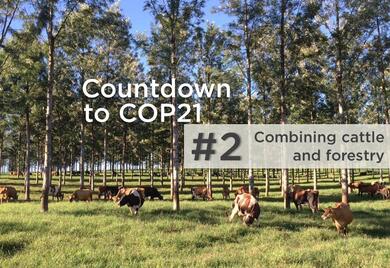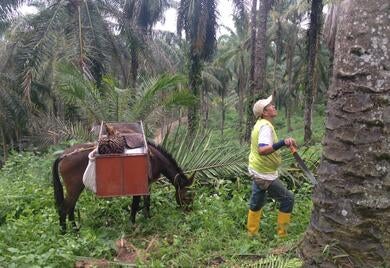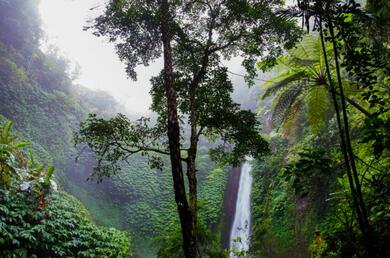
Combining cattle and forestry: five benefits of silvopastoralism
One month ago I was in Paraguay, visiting with cattle producers to study an innovative production system. Even in spring, Paraguay is hot, and I was soon sweating under the intense sun. If I suffer from a twenty minute walk in the sun, how would cows that spend all day outside feel?

Four Ways to Get the Most out of Palm Oil in Latin America and the Caribbean
What do soap, Ben and Jerry’s, and KitKat bars have in common? They all contain palm oil, an oil produced by the oil palm tree. Indonesia and Malaysia produce the vast majority of the world’s supply and have experienced significant environmental consequences as a result. Now the crop’s profitability is attracting interest in other tropical climates, including Latin America and the Caribbean.

Water crises drive private sector innovation
Protecting areas that provide water through water funds highlights an innovative way to spur green growth driven by the private sector. With the on-going water shortages in Sao Paulo, Brazil, the region has a heightened awareness of the importance of securing water supply for big cities. Water supply links increasingly to deforestation and poor watershed management.

What is the Value of Nature?
An apple at a supermarket: $0.50. 1,000 gallons of tap water in New York City: $4.95. Annual value of pollination to agriculture: $200 billion. Cost savings from good land management in New York City's watershed: $8 billion. Total value of benefits from nature: priceless? Robert Costanza, a leading environmental economist, just published the article: "Changes in the Global Value of Ecosystem Services," where he estimated the total value of these benefits at $145 trillion per year. That’s about twice as much as the total output of the global economy. Some of the value that nature provides has an obvious cost. Other values don't directly affect your wallet and are less visible. But just because we don't pay for some of nature's benefits doesn't mean they have less value.

Six Takeaways on the Growth of Palm Oil in Latin America
As I have noted before in this space, there are a number of risks and opportunities associated with palm oil. Among other negative impacts, expansion of palm oil plantations drives deforestation in many tropical countries, resulting in enormous carbon emissions. However, palm oil’s high productivity makes it a profitable investment and it has the potential to bring wealth and employment to rural areas.

Why are there so few women at the World Economic Forum?
Only 17% of participants at the World Economic Forum, hosted in Davos, Switzerland last month, were women. The annual WEF meeting brings together 2,500 leaders from government, the private sector and civil society to discuss challenges and opportunities for the global economy. For instance, one of the major outputs of the conference is a Global Risks Report that summaries economic, environmental, geopolitical, societal and technological risks to the global economy. If so few women are included in the WEF, how can the conference identify the risks that apply to the whole population and influence thinking on major world issues?